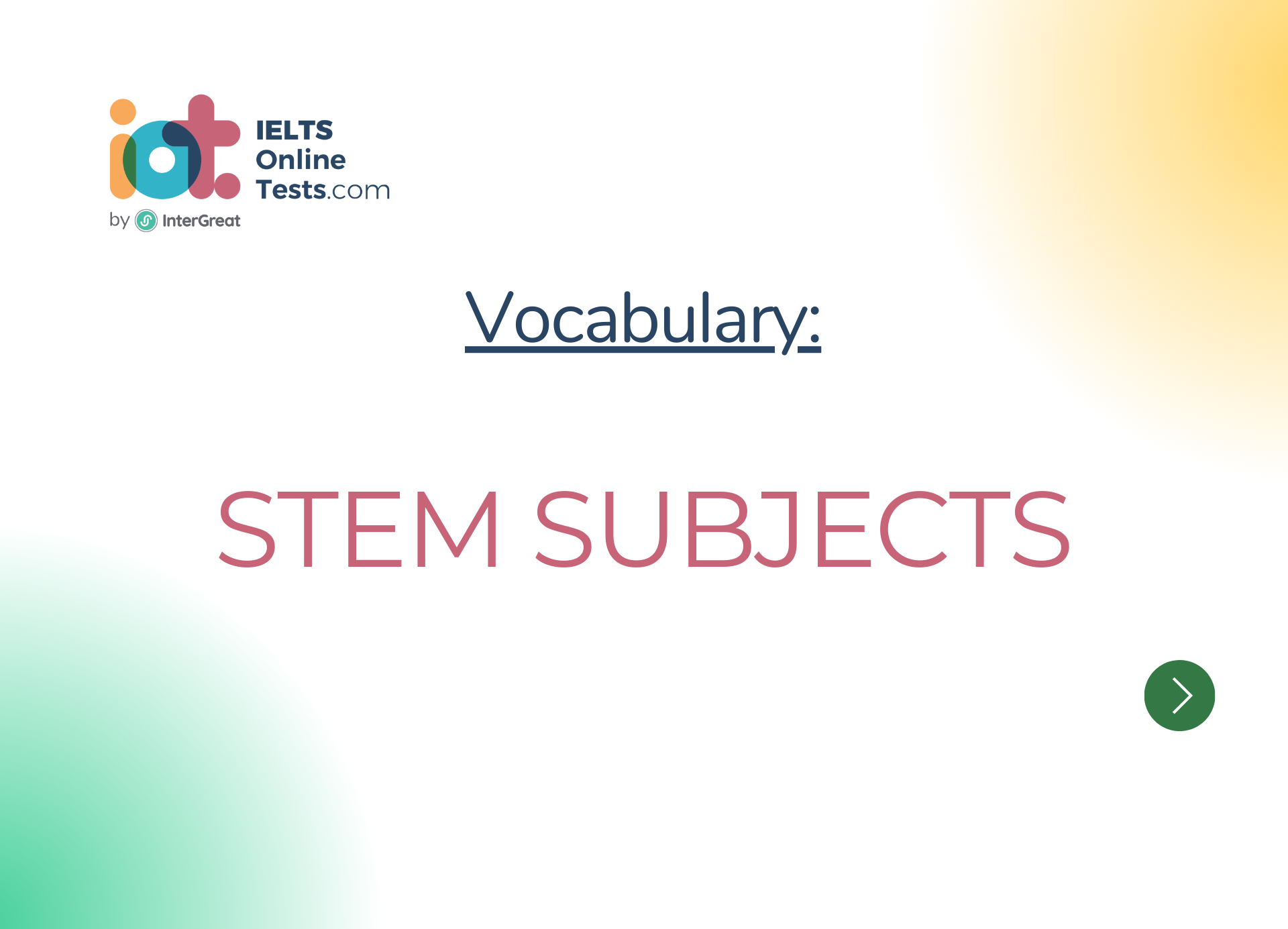
STEM subjects
Here's a lesson on vocabulary related to "STEM Subjects" (Science, Technology, Engineering, and Mathematics) for the IELTS band score 3.0-4.5:
I. Science:
Biology: The study of living organisms and their interactions with the environment.
Chemistry: The study of the properties, composition, and reactions of matter.
Physics: The study of matter, energy, and the fundamental principles governing the physical world.
Astronomy: The study of celestial objects, such as stars, planets, and galaxies.
Environmental Science: The study of the environment and its interactions with living organisms.
Microbiology: The study of microorganisms, including bacteria, viruses, and fungi.
Genetics: The study of genes and heredity, and their role in the inheritance of traits.
Ecology: The study of the relationships between organisms and their environment.
Geology: The study of the Earth's solid materials, such as rocks, minerals, and the processes that shape the planet.
Anatomy: The study of the structure and organization of living organisms.
II. Technology:
Information Technology: The use and development of computer systems, software, and networks.
Digital Literacy: The ability to use digital technologies effectively and responsibly.
Internet of Things (IoT): The network of interconnected devices and objects that can exchange data.
Programming: The process of writing instructions for a computer to perform specific tasks.
Artificial Intelligence (AI): The development of computer systems capable of performing tasks that normally require human intelligence.
Robotics: The branch of technology that deals with the design, construction, and programming of robots.
Cybersecurity: The protection of computer systems and networks from unauthorized access and data breaches.
Software Development: The process of creating computer programs or applications.
Data Analysis: The examination and interpretation of data to discover patterns, draw conclusions, and make informed decisions.
Virtual Reality (VR): A computer-generated simulation of a three-dimensional environment that can be interacted with.
III. Engineering:
Civil Engineering: The design and construction of infrastructure, such as buildings, bridges, and roads.
Mechanical Engineering: The design and manufacturing of mechanical systems and devices.
Electrical Engineering: The study of electrical systems, circuits, and the generation, transmission, and distribution of power.
Aerospace Engineering: The design and development of aircraft and spacecraft.
Environmental Engineering: The application of engineering principles to address environmental challenges.
Chemical Engineering: The branch of engineering that deals with the design and operation of chemical processes.
Biomedical Engineering: The application of engineering principles to healthcare and medical technologies.
Structural Engineering: The design and analysis of structures, such as buildings, bridges, and dams.
Computer Engineering: The integration of computer science and electrical engineering to develop computer systems and hardware.
Renewable Energy Engineering: The study and development of sustainable and environmentally friendly energy sources.
IV. Mathematics:
Algebra: The branch of mathematics that deals with symbols and the manipulation of mathematical expressions.
Geometry: The study of shapes, sizes, and properties of figures and spaces.
Calculus: The branch of mathematics that focuses on rates of change and accumulation.
Statistics: The collection, analysis, interpretation, presentation, and organization of data.
Probability: The likelihood of an event occurring, often expressed as a number between 0 and 1
Algebraic Equations: Mathematical expressions that involve one or more variables and represent equality.
Trigonometry: The branch of mathematics that deals with the relationships between angles and sides of triangles.
Probability Distribution: A mathematical function that describes the likelihood of different outcomes in a random experiment.
Mathematical Modeling: The process of creating mathematical representations of real-world phenomena.
Numerical Analysis: The study of algorithms and methods for solving mathematical problems using numerical approximation.
Remember to practice using these vocabulary words in sentences and conversations to improve your understanding and fluency in English.




